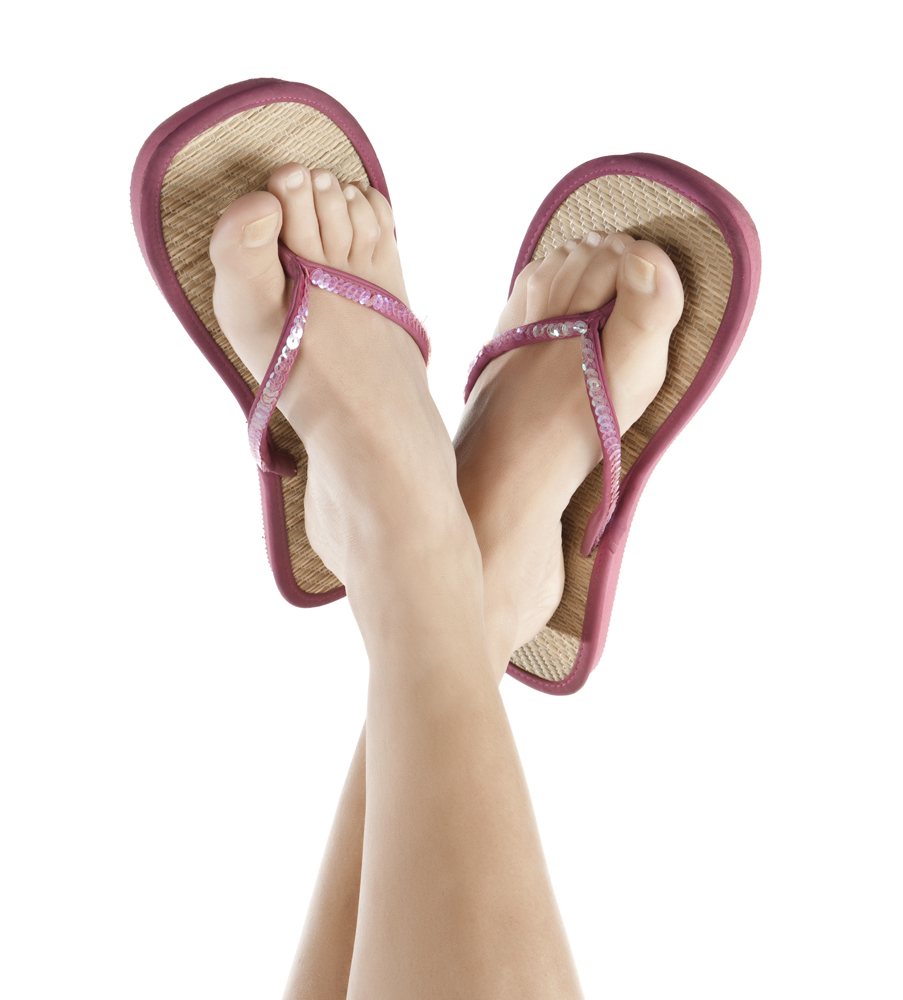 Flip-flops are a popular shoe to wear during the summer months, despite the damage that may occur to your feet. It is a natural reaction to clench your toes to help keep the shoe on the foot, and this may gradually change the way you walk. The muscles in the feet and calves may be affected, and this can lead to having sharp pains in the heel. Research has indicated that it may be acceptable to wear flip-flops occasionally, and this may limit any potential damage the feet may receive. If you generally walk for long distances, it is best to wear a sandal that has a strap on the back to help keep the shoe on the foot. If you would like additional information on how flip-flops may affect the feet, speak to a podiatrist who can answer any questions you may have.
Flip-flops are a popular shoe to wear during the summer months, despite the damage that may occur to your feet. It is a natural reaction to clench your toes to help keep the shoe on the foot, and this may gradually change the way you walk. The muscles in the feet and calves may be affected, and this can lead to having sharp pains in the heel. Research has indicated that it may be acceptable to wear flip-flops occasionally, and this may limit any potential damage the feet may receive. If you generally walk for long distances, it is best to wear a sandal that has a strap on the back to help keep the shoe on the foot. If you would like additional information on how flip-flops may affect the feet, speak to a podiatrist who can answer any questions you may have.
Flip-flops can cause a lot of problems for your feet. If you have any concerns about your feet or ankles, contact one of our podiatrists from Sutera and Jones Surgical Podiatry. Our doctors will assist you with all of your foot and ankle needs.
Flip-Flops and Feet
Flip-flops have managed to become a summer essential for a lot of people. While the shoes may be stylish and easy to slip on and off, they can be dangerous to those who wear them too often. These shoes might protect you from fungal infections such as athlete’s foot, but they can also give you foot pain and sprained ankles if you trip while wearing them.
When Are They Okay to Wear?
Flip-flops should only be worn for very short periods of time. They can help protect your feet in places that are crawling with fungi, such as gym locker rooms. Athlete’s foot and plantar warts are two common fungi that flip-flops may help protect your feet against.
Why Are They Bad for My Feet?
These shoes do not offer any arch support, so they are not ideal for everyday use. They also do not provide shock absorption or heel cushioning which can be problematic for your feet. Additionally, you may suffer from glass cuts, puncture wounds, and stubbed toes since they offer little protection for your feet.
More Reasons Why They Are Bad for Your Feet
- They Slow You Down
- May Cause Blisters and Calluses
- Expose Your Feet to Bacteria
If you have any questions, please feel free to contact one of our offices located in Media, Glen Mills, Riddle Memorial Hospital, and Concordville, PA . We offer the newest diagnostic and treatment technologies for all your foot care needs.
